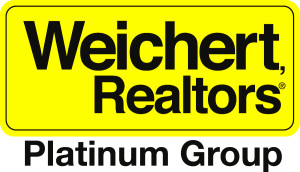GRAND RAPIDS HOME BUYER TIPS
 Buying a home can be one of your most significant investments in life. Not only are you choosing your dwelling place, and the place in which you will bring up your family, you are most likely investing a large portion of your assets into this venture. The more prepared you are at the outset, the less overwhelming and chaotic the buying process will be. The goal of this page is to provide you with detailed information to assist you in making an intelligent and informed decision. Remember, if you have any questions about the process, I’m only a phone call or email away!
Buying a home can be one of your most significant investments in life. Not only are you choosing your dwelling place, and the place in which you will bring up your family, you are most likely investing a large portion of your assets into this venture. The more prepared you are at the outset, the less overwhelming and chaotic the buying process will be. The goal of this page is to provide you with detailed information to assist you in making an intelligent and informed decision. Remember, if you have any questions about the process, I’m only a phone call or email away!
Tip #10: How FHA and VA Financing Affects Your Offer
Extra Costs to the Seller
If you are obtaining a VA or FHA loan in order to finance your purchase, you must include that information in your offer. This is because government loans place additional financial and performance obligations on the seller.
Non-Allowable Fees
First, VA and FHA loans prohibit buyers from paying certain types of fees that are often charged by lenders, escrow companies, settlement agents, and title companies. They are called “non-allowable” fees. They still get charged anyway, but as the buyer, you are “not allowed” to pay them. The result is that the seller ends up paying them instead of you.
Most of these “non-allowable” fees come from your lender. By the time you are making an offer you should have already been pre-qualified by a loan officer, so you or your real estate agent can ask how much the lender’s non-allowable fees will be. Experienced agents should also have an idea of what non-allowable fees will be charged by the escrow or settlement agent and the title insurance company.
Since these are fees the seller would not pay on an offer with conventional financing, this information must be included in your offer. You should also realize that since the seller will be paying these additional fees, they may be a little less negotiable on the price.
VA and FHA Appraisals
Home appraisal inspections on FHA and VA loans are a little more detailed than on conventional loans (and more expensive). The appraisers are required to perform certain minimum inspections as well as evaluate the market value of the property. Although these inspections are not as detailed as a professional home inspection and should not be considered a substitute, sometimes repairs are required.
These are additional costs the seller would not be obligated to pay for someone obtaining conventional financing, so your offer should include a maximum figure for these repairs. Otherwise the seller is signing the equivalent of a blank check, and they do not want to do that.
At the same time, whatever figure you put in will most likely affect the seller’s willingness to negotiate on price. If you put $500 as an estimate, the seller may be $500 less negotiable on their price. If no repairs are required, you may have been able to get the house for $500 less than what you and the seller agreed on as the price. The solution is to add a clause to your offer that goes something like this. “If required repairs cost less than the maximum amount allowed, the excess will be credited toward buyer’s closing costs.”
More Home Buyer Tips
Tip #1: Benefits of Owning Your Own Home
- The Best Investment
- Income Tax Savings
- Stable Monthly Housing Costs
- Forced Savings
- Freedom and Individuality
- More Space
Tip #2: Important Things To Avoid Before Buying a Home
- Don’t Move Money Around
- The Effect of Changing Jobs
- No Major Purchases of Any Kind
Tip #3: Don’t Buy a Car – or Did You Already Buy One?
- When Income Grows and You Want to Buy “Stuff”
- Debt-to-Income Ratios and Car Payments
- How Buying a Car Reduces Your Purchase Price
Tip #4: The Business Cycle and Buying a Home
- Recession and Expansion
- Supply and Demand
- Should You Try to “Time the Market”?
Tip #5: Comparable Sales and Your Offer Price
- Determining Your Offer Price
- Comparable Sales in the Public Record
- Comparable Sales in the Multiple Listing Service
- Comparable Sales – Pending Transactions
- Other Factors Influencing Your Offer Price
Tip #6: Major Factors Influencing your Offer Price
- How Property Condition Affects Your Offer
- How Home Improvements Affect Your Offer
- How Market Conditions Affect Your Offer
- How Seller Motivation Affects Your Offer
- The Final Decision on Your Offer Price
Tip #7: Offering to Purchase Real Estate- the Basics
- Introduction and Overview
- Contingencies in a Purchase Offer
- Earnest Money Deposit
- The Closing Date
- Transfer of Possession
Tip #8: Writing an Offer – Safeguards Regarding the Property
- Disclosures From the Seller
- Condition of the Property Upon Transfer
- Inspections You Should Require
- Final Walk-Through Inspection
Tip #9: How Financing Details Affect Your Offer
- Down Payment
- Interest Rates
- Closing Costs and Financing Incentives
- Seller Financing
- Cash Offers
- Other Financing Details in Your Offer
Tip #10: How FHA and VA Financing Affects Your Offer
- Extra Costs for the Seller
- VA and FHA Appraisals
Tip #11: Selecting Service Providers
- You and the Seller Must Agree
- Escrow and Settlement
- Title Insurance
- Termite and Pest Inspection



